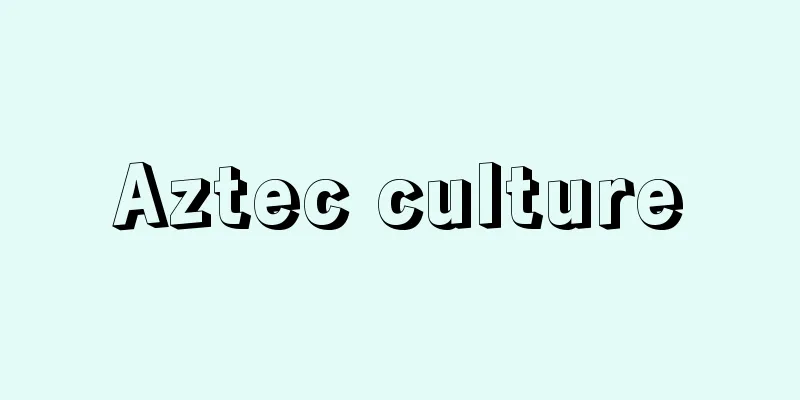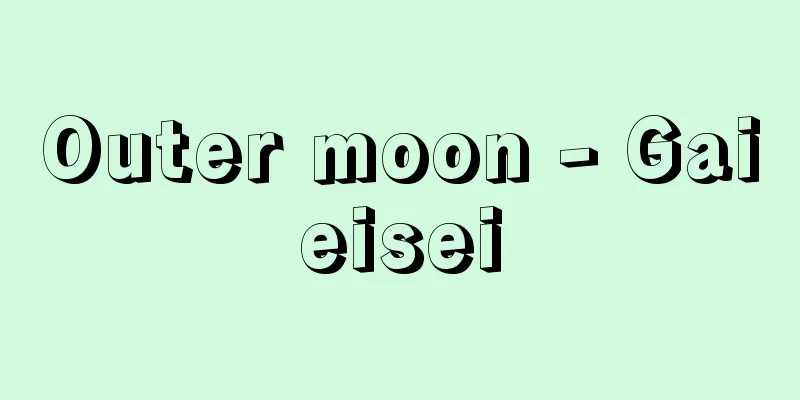Aztec culture

|
The culture flourished from the 14th century until 1521, when it was conquered by the Spanish, with its capital in the center of what is now Mexico City, then called Tenochtitlan. The name Azteca means people of Aztlan, their legendary place of origin. However, the Aztecs later called themselves Mexica, meaning people who worship the god Meshitli. The present-day name of the country, Mexico, or Mexico, is derived from this name, and researchers generally refer to this culture as the Mexica culture. Source: Heibonsha World Encyclopedia, 2nd Edition Information |
|
テノチティトランと呼ばれた現在のメキシコ市の中心部に都を置き,14世紀からスペイン人によって征服された1521年まで栄えた文化。アステカAztecaとは彼らの伝説上の起源の地,〈アストランAztlan〉の人を意味する。しかし,アステカ族はのちに,メシトリ神をあがめる人を意味する〈メシカMexica〉と称した。現在の国名メヒコまたはメキシコはこの名に由来しており,研究者の間では,この文化をメシカ文化と呼ぶ方が一般的である。
出典 株式会社平凡社世界大百科事典 第2版について 情報 |
>>: āstika - āstika (English spelling)
Recommend
Asahidake [Hot Spring] - Asahidake
...Sekko spring, 47-51°C. It springs from a plate...
law in action
...However, the concept remains important in high...
Isejima Palace
Year of birth: Year of birth and death unknown. A ...
Potato pattern - Potato husk
taro stem. See the entry for "potato" in...
Kagami [town] - Kagami
A former town in Kami District, eastern Kochi Pref...
Gravitational Units - Gravitational Units
A system of units that uses force or weight due t...
Mitsuru Yasuda
1763-1816 A doctor and poet from the mid to late ...
Bonin Grosbeak (English name: Carpodacus ferreorostris)
Passerine, Fringillidae. Total length 18-19cm. A s...
oyun hava (English spelling) oyunhava
...The former are songs with free rhythm, wide ra...
Ennen noh - Ennen noh
…Usually refers to Sarugaku-Noh. In a broader sen...
Kiev (aircraft carrier)
The Soviet Navy rapidly expanded its power after ...
Kitoi
…This is the fourth period of the Baikal Neolithi...
The theory of immortals
A mystical thought that originated from ancient Ch...
Beneficial interest
The right of citizens to demand that the state gr...
Lapita Pottery - Lapita Pottery
This is the oldest pottery in Oceania, found in th...









